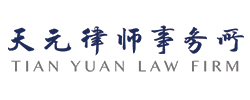When an application for reconsideration is rejected on the grounds of not meeting acceptance conditions, an applicant can consider several options to challenge the decision
Article 133 of the Interpretation of the Supreme People’s Court on Application of the Administrative Litigation Law of the People’s Republic of China states that when a reconsideration application is rejected on the grounds that it does not meet the acceptance conditions, it is not the reconsideration authority’s decision to uphold the original administrative action. In judicial practice, courts also believe that if the reconsideration authority rejects a reconsideration application or request, it is a substantive decision. This is different in nature from upholding the original administrative action, and rejecting the application on the grounds of not meeting the acceptance criteria is a procedural rejection. It does not belong to either upholding or changing the original action because the reconsideration authority did not make a substantive determination, nor did it handle the legality of the administrative action in question.
The “inaction” of the reconsideration authority consists of both negative “inaction”, where no reconsideration decision is made within the prescribed time limit, and positive “inaction”, where rejection is expressly made. Therefore, rejecting a reconsideration application on the grounds that it does not meet the acceptance conditions is considered as “inaction” by the reconsideration authority.
REMEDY APPROACH

Partner
Tian Yuan Law Firm
Tel: +86 138 1041 7260
E-mail: chenzhuo@tylaw.com.cn
When a decision is made to reject a reconsideration application for not meeting the acceptance conditions, remedies could include suing against the inaction of the reconsideration authority, or against the original administrative action.
However, there may be disputes over whether the applicant can apply for reconsideration with another reconsideration authority regarding the original administrative action. For example, in some cases, the authority making the original administrative action may have informed the counterparty of the wrong reconsideration authority, and after the counterparty applies for reconsideration, it is considered to fail to meet the acceptance conditions. The counterparty then applies to the competent reconsideration authority separately.
There are cases where the counterparty is supported in filing a separate reconsideration application under such circumstances. One such example is the case of Qi Weining v Beijing Municipal People’s Government regarding the latter’s decision to not accept the application for administrative reconsideration. In addition, article 12.1 of the Administrative Reconsideration Law provides that the applicant, when applying for reconsideration on an administrative action, may apply to the government departments at the same level, or the competent department at a higher level.
If one of the reconsideration authorities refuses to accept the application and it is still uncertain whether the application for reconsideration to another authority will be accepted, it is possible that the case will be considered as having not met the acceptance conditions – such as exceeding the time limit for reconsideration application – and that another reconsideration authority may believe that the applicant has already exercised his or her right to choose a reconsideration authority and, as such, the applicant may not have the right to apply for reconsideration with another authority.
TIME LIMIT FOR LAWSUITS

Associate
Tian Yuan Law Firm
Tel: +86 188 1304 4692
E-mail: zhengyeye@tylaw.com.cn
Article 45 of the Administrative Procedure Law provides that those who do not accept a reconsideration decision may file a lawsuit within 15 days from the date of receiving the rejection decision. If a reconsideration application is rejected for not meeting the acceptance conditions, the above-mentioned provisions should apply for the lawsuit against the reconsideration authority.
However, if a lawsuit is filed against the original administrative action, the above-mentioned provisions should not apply, and it is generally believed that the six-month time limit should be calculated from the date when the applicant knew, or should have known, about the original administrative action.
The Supreme People’s Court also believes that the 15-day period is applicable to cases of upholding and changing the original administrative action after reconsideration, but does not include cases where the reconsideration application is rejected due to failure to meet the acceptance conditions. For details, please refer to the case of Zhou Jiahua v Hai’an County People’s Government and Nantong Municipal People’s Government on the housing expropriation compensation decision and administrative reconsideration decision. As mentioned earlier, in such cases the original administrative action should be regarded as an action that has not been reconsidered, and that the reconsideration authority has not made a substantive evaluation of the original administrative action. Therefore, it should be considered as a case of inaction by the reconsideration authority, and the time limit for filing a lawsuit should be calculated from the date of receiving the reconsideration rejection decision.
IDENTIFY THE DEFENDANT
In a lawsuit against the reconsideration authority for inaction, the reconsideration authority is taken as the defendant; in a lawsuit against the original administrative action, the authority that made the action is the defendant. The defendant in administrative proceedings and the respondent in reconsideration are usually the same. However, for the approved administrative action, the respondent in reconsideration and the defendant in administrative proceedings are not.
Article 13 of the Implementing Regulations for the Administrative Reconsideration Law provides that in an administrative reconsideration, the authority that approves the action of the lower-level administrative authority is the respondent.
However, article 19 of the Interpretation of the Administrative Procedure Law provides that if a party refuses to accept an administrative action approved by a higher-level administrative authority, and brings a lawsuit in a court, the authority that signed the legally effective document shall be the defendant. That is, the approving authority is the respondent in reconsideration (even if it has not signed the document), and the authority signing the document is the defendant in a lawsuit.
In addition, there may be cases where the lower-level authority and approving authority are co-defendants in administrative litigations. In this case, in principle, the signing of administrative decision documents should still be used as the identification standard. In this regard, please refer to the Interpretation of the Administrative Procedure Law, edited by the Legislative Affairs Commission of the NPC Standing Committee. The reason for adopting the signature standard in administrative litigation to identify the defendant may be to facilitate the plaintiff’s lawsuit. However, for administrative reconsideration, the reconsideration authority is often the approving authority, or even its lower-level authority.
If the approving authority is not identified as the respondent, there will be cases where the reconsideration authority has to reconsider the action approved by itself, or even by the higher-level authorities, thereby increasing the difficulty of, and resistance to, the reconsideration.
Chen Zhuo is a partner at Tian Yuan Law Firm. He can be contacted at +86 138 1041 7260 or by e-mail at chenzhuo@tylaw.com.cn
Zheng Yeye is an associate at Tian Yuan Law Firm. She can be contacted at +86 188 1304 4692 or by e-mail at zhengyeye@tylaw.com.cn
10/F, Tower B
China Pacific Insurance Plaza
28 Fengsheng Hutong
Beijing 100032, China
Tel: +86 10 5776 3888
Fax: +86 10 5776 3777
www.tylaw.com.cn






















